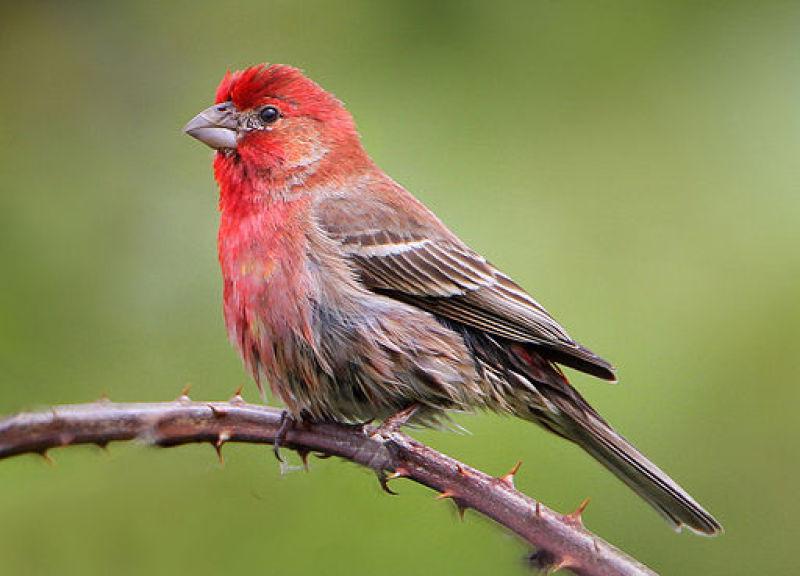
Finches living in the Galapagos Islands, which helped naturalists Charles Darwin prove his theory of evolution, are currently facing the threat of extinction due to parasitic flies.
According to scientists' prediction, these birds could get wiped out in 50 years if proper steps are not taken, Huffington Post reported.
Based on studies carried out by researchers on the Galapagos, over 500,000 birds belonging to 18 species of finches are dealing with a parasitic problem caused by flies. They explained that these flies lay the eggs of their larvae in the nests of the finches. Specifically, these eggs are laid inside the nostrils of the young birds. Soon after hatching, the larvae will then feed on the birds.
"They are maggots basically, is what they are," lead researcher Pror. Dale Clayton of the University of Utah said according to BBC.
"Some of the eggs are laid in the nostrils of the nestlings so those eggs hatch and the larvae begin feeding immediately in the nostrils so you see perforations through the bill especially in bad cases," he added.
Another member of the research team, named Jennifer Koop, even likened the flies to vampires. According to the professor, these insects feed on the young finches by chewing through their skin and sucking out their blood and other fluids, the Telegraph has learned.
Through computer models, the researchers predicted that if the infestations of the flies continue, then the finches native to the Galapagos Islands could disappear 50 years from now. But, they noted that this could be prevented through man-made actions.
One of the solutions they proposed is introducing wasps in the regions. These insects could lay their own eggs in the fly's larvae which could then eat and destroy them.
Another option the researchers are considering is distributing cotton balls soaked in pesticides in the islands. The birds will then use these as lining for the nests which could end up killing the parasitic flies.
The researchers noted that these solutions may not completely wipe out the problem. But, bringing down the number of infected nests by 40 percent could prevent the extinction of the finches.
Aside from protecting the region's biodiversity, saving the finches in the Galapagos Islands is a vital effort due to their role in scientific development. By observing the varying sizes of their beaks and bodies, Darwin was able to draft his theory of evolution by natural selection. This concept changed the world's conventional thinking by introducing the idea the evolution is driven by how living organisms adapt to their environment in order to survive.


















